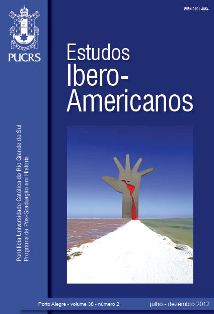From Araucania to Lima: usage of the concept of "civilization" in the territorial expansion of Chile, 1855-1883
DOI:
https://doi.org/10.15448/1980-864X.2012.2.11909Keywords:
Civilization, Mapuche, Territorial expansionAbstract
This text analyzes the concept of civilization as used in the Chilean public debate between l855 and l883. Special emphasis is placed on the use of the concept to legitimize the territorial expansion of the Chilean State, both towards the south of the Bio-Bio river as well as towards the north of the Atacama desert. The condition of “barbarians” of its inhabitants – mainly the mapuches – is stressed, applied also to Bolivia and Peru. “Civilization” became a functional concept for the Chilean elite allowing its members to assume a sense of historical mission, and also justify the use of violence associated to the incorporation of the above mentioned territories to the definition of Chile’s national sovereignty.Downloads
Downloads
Published
How to Cite
Issue
Section
License
Copyright
The submission of originals to Estudos Ibero-Americanos implies the transfer by the authors of the right for publication. Authors retain copyright and grant the journal right of first publication. If the authors wish to include the same data into another publication, they must cite Estudos Ibero-Americanos as the site of original publication.
Creative Commons License
Except where otherwise specified, material published in this journal is licensed under a Creative Commons Attribution 4.0 International license, which allows unrestricted use, distribution and reproduction in any medium, provided the original publication is correctly cited.






